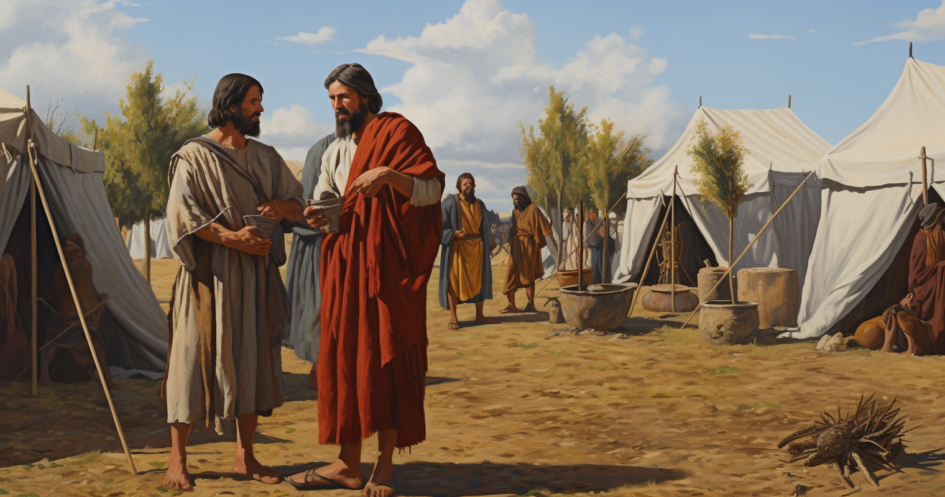Many people erroneously think that the first Christians were socialist in a modern sense based on their interpretation of Acts 4:32-37. These verses describe how the believers in the early Church shared everything they had, and no one claimed that any of their possessions was their own. Some interpret this as evidence that the early Church was a socialist society, where private property was abolished in favor of communal ownership. However, a closer examination of biblical texts and historical context reveals a different picture.
Acts 4:32-37 indeed portrays a remarkable unity among the believers, where they willingly shared their possessions to meet each other’s needs:
And the multitude of believers had but one heart and one soul: neither did any one say that aught of the things which he possessed, was his own; but all things were common unto them. 33 And with great power did the apostles give testimony of the resurrection of Jesus Christ our Lord; and great grace was in them all. 34 For neither was there any one needy among them. For as many as were owners of lands or houses, sold them, and brought the price of the things they sold, 35 And laid it down before the feet of the apostles. And distribution was made to every one, according as he had need. 36 And Joseph, who, by the apostles, was surnamed Barnabas, (which is, by interpretation, The son of consolation,) a Levite, a Cyprian born, 37 Having land, sold it, and brought the price, and laid it at the feet of the apostles.
Some say that the story of Ananias further shows that the early Christians had to give everything they owned to the Church:
5 But a certain man named Ananias, with Saphira his wife, sold a piece of land, 2 And by fraud kept back part of the price of the land, his wife being privy thereunto: and bringing a certain part of it, laid it at the feet of the apostles. 3 But Peter said: Ananias, why hath Satan tempted thy heart, that thou shouldst lie to the Holy Ghost, and by fraud keep part of the price of the land?
This communal sharing reflected the deep sense of fellowship and generosity among the early Christians. However, it’s crucial to note that this voluntary sharing was not mandated by the Church leadership or enforced by any socialist ideology. Charity is not socialism. Instead, it stemmed from the believers’ commitment to living out the teachings of Jesus, who emphasized love, generosity, and caring for one another.
Furthermore, Acts 5:4 provides important insight into the understanding of property ownership in the early Church. In this passage, Peter confronts Ananias and his wife Sapphira after they lied about the proceeds from the sale of their property. Peter’s rebuke to Ananias, “Whilst it remained, did it not remain to thee? and after it was sold, was it not in thy power?” highlights the fact that private property was still recognized and respected within the Christian community. Ananias and Sapphira were not condemned for owning property but for their deceitful behavior and attempt to deceive God.
The story of Ananias and Sapphira underscores the importance of honesty, integrity, and transparency in the early Church. It serves as a warning against hypocrisy and falsehood within the Christian community. While the believers were encouraged to share their possessions and support one another, they were not coerced into relinquishing their property or forced to conform to a socialist economic system.
In conclusion, the early Christian community described in the book of Acts was characterized by voluntary generosity and mutual support, rather than enforced socialism. Private property was recognized and respected, and sharing was motivated by love and compassion, not by socialist principles. The story of Ananias and Sapphira serves as a reminder of the importance of truthfulness and integrity in all aspects of life, including matters of property and possessions.
 The Libertarian Catholic
The Libertarian Catholic
















